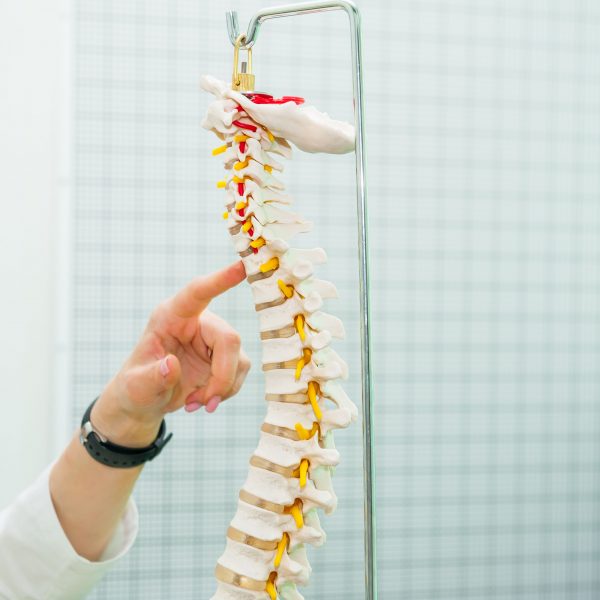- Gum and Jaw cancer is a rare form of oral cancer that can affect older adults and young individuals.
- Tobacco and alcohol use, HPV infection, poor oral hygiene, age and genetics, and radiation exposure are some risk factors for the disease.
- Symptoms include mouth sores, difficulty swallowing and speaking, jaw pain, and swelling.
- Diagnosing and treating gum and jaw cancer early is essential for successful treatment.
- Maintaining good oral hygiene, visiting the dentist regularly, and getting porcelain veneers can help reduce the risk of developing this form of cancer.
Cancer is a topic that no one likes to discuss, but it’s essential to know about it to be aware of its risks and take necessary precautions. Gum and jaw cancer is rare but can pose a significant threat if not diagnosed and treated early. Here’s everything you need to know about gum and jaw cancer.
What is Gum and Jaw Cancer?
Gum and jaw cancer is rare in the mouth, gums, tongue, cheeks, and throat. It can originate from the oral cavity’s gums, bones, or tissues. Typically, gum and jaw cancer affect older adults with a history of tobacco and alcohol abuse. However, there are cases where young individuals can develop it too. The symptoms of this type of cancer include mouth sores, difficulty swallowing and speaking, jaw pain, and swelling.
Causes and Risk Factors
Various factors contribute to gum and jaw cancer. Here are some of them:
Tobacco and Alcohol Use

Tobacco and alcohol are two of the most common causes of gum and jaw cancer. Frequent use of these substances increases the risk of developing mouth, throat, and lung cancer. Tobacco and alcohol contain carcinogens that damage the cells in the mouth, leading to the development of cancer.
HPV Infection
Human papillomavirus (HPV) is a common sexually transmitted virus that can cause cancer in the mouth and throat. The virus is spread through sexual contact, and those with multiple sexual partners are at a higher risk of developing HPV-related cancer. HPV-related gum and jaw cancer is becoming more common and affects both men and women.
Poor Oral Hygiene
Poor oral hygiene can also increase gum and jaw cancer risk. Neglecting regular dental check-ups, not brushing and flossing regularly, and using tobacco products are some of the factors that can lead to poor oral hygiene. This can cause various issues, such as gum disease, tooth decay, and oral cancer.
Age and Genetics
Research suggests that age and genetics can play a role in developing gum and jaw cancer. People over 50 are at a higher risk of developing this type of cancer. Moreover, those with a family history of cancer are more likely to develop the disease. Therefore, if you have a family history of cancer, you must be vigilant to look for any symptoms that may indicate gum cancer.
Exposure to Radiation
Radiation exposure can also increase the risk of developing gum and jaw cancer. Those who have undergone radiation therapy to treat head and neck cancer may have a higher risk of developing gum and jaw cancer. Therefore, discussing the potential risks of radiation therapy with your oncologist before undergoing treatment is vital.
Tooth Loss

Lastly, the lack of tooth support can also put people at a higher risk of developing gum and jaw cancer. Tooth loss weakens the structures in the mouth, making it easier for cancer cells to spread. Therefore, maintaining healthy gums and teeth is essential for reducing the risk of gum and jaw cancer.
Moreover, getting orthodontic supplies can make a huge difference in preventing this kind of cancer. The best option is to get robust porcelain veneers for your teeth to protect them and avoid tooth loss and cancer over time. The veneers do this by providing a strong layer of protection on the teeth, which can reduce the risk of cavities and gum disease.
Diagnosis and Treatment
Gum and Jaw cancer can be difficult to diagnose, as the symptoms can often be confused with other common illnesses or dental issues. If you experience any of the mentioned symptoms, it is best to consult your dentist or doctor. They will examine your mouth and perform a biopsy to confirm the diagnosis.
Once diagnosed, the treatment options depend on how advanced the cancer is. Generally, doctors will start by surgically removing the tumor and then use radiation and chemotherapy treatments to help kill the remaining cancer cells. Doctors may sometimes recommend reconstructive surgery for cosmetic purposes after cancer removal and treatment.
Gum and jaw cancer are rare but severe forms of oral cancer that must be diagnosed early for successful treatment. Knowing its risk factors, symptoms, and treatments is essential to protect yourself from this deadly disease. If you have any concerns or questions about your oral health, contact your doctor immediately.






